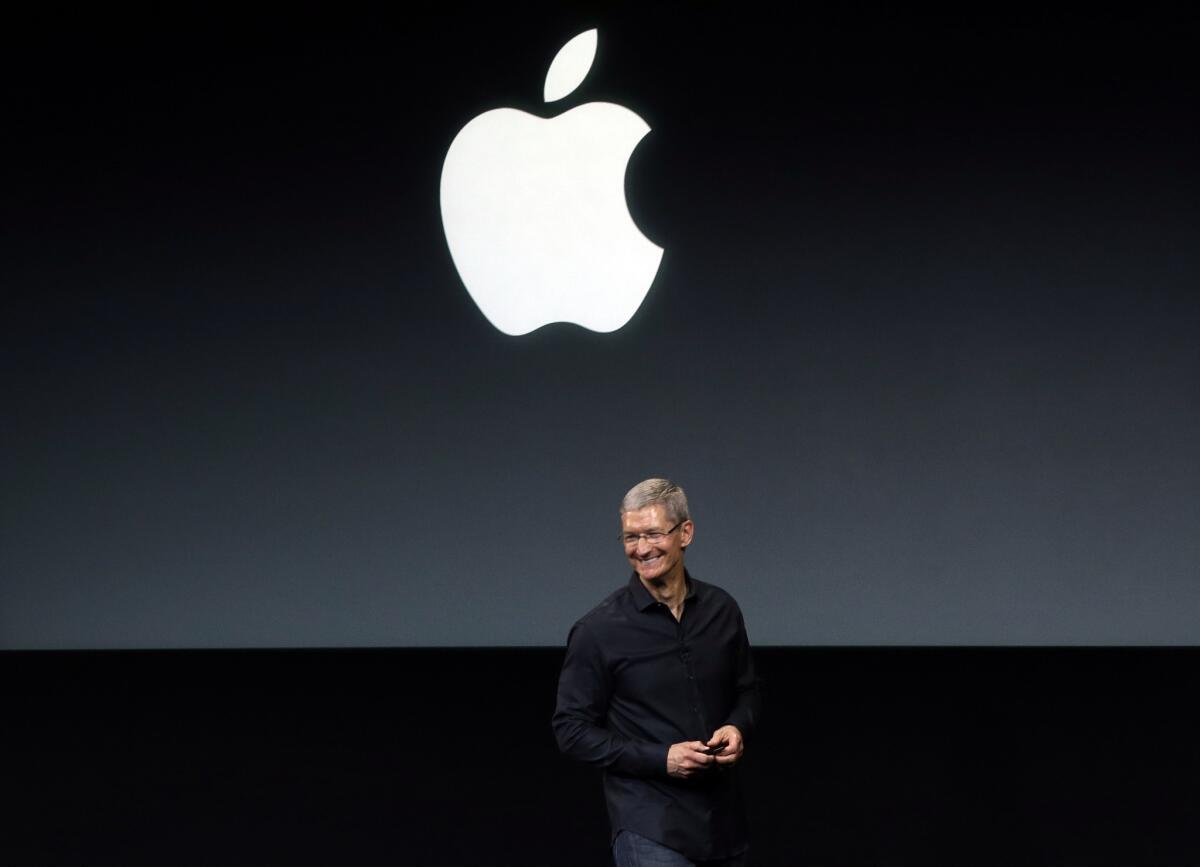News Analysis: Apple’s Arcade video game service seeks to upend another business model

- Share via
Of the refreshed or new products that Apple Inc. talked about at its extravaganza this week, I’m most curious about Arcade, the $5 monthly subscription to video games for iPhones and iPads.
The success of Arcade hinges on Apple’s ability to upend an established model for what are known as casual mobile games. These diversions — think Pokemon Go or Clash of Clans rather than lavish Xbox or PlayStation video games — tend to be free to download and play. The companies make money by showing advertisements in the games or persuading users to buy digital trinkets like an advanced virtual weapon.
In short, Apple wants people to pay $5 a month for the types of games they have been getting for free, but without ads or in-app purchases. The proposition makes Arcade an intriguing test of Apple’s capability to reshape an industry, consumer behavior and pricing models. (Other companies, including Microsoft Corp.’s Xbox and Google, have or are trying to create subscription models, but for higher-end games.)
The struggle for Double Fine Presents to get the first “Psychonauts” released has become the stuff of modern game lore.
Apple being Apple, this just might work — or not. Among the Apple watchers on Wall Street, no one seems confident the company can make a mobile-game subscription work, but few predict it will fail. That makes Arcade the get-out-the-popcorn tech product of the moment.
Apple has a generally deserved reputation for transforming consumer behavior or making niche behaviors mainstream. Apple made it commonplace to interact with computers with a mouse and a graphical representation of a desk. Apple wasn’t the first company to chop records up into digital files like MP3s, but it got the music industry on board with the idea and made song downloads easy and appealing for everyone.
Today, I’m not sure Apple can shape people’s habits at will.
Yes, tens of millions of people subscribe to Apple Music, but Spotify had already persuaded music executives and many millions of consumers to embrace streaming. It doesn’t seem as if Apple has persuaded many people on the merits of a subscription to digital news publications. Apple executives scarcely mention the 6-month-old Apple News+, other than to acknowledge that it exists.
And with Arcade, Apple is going back to the past. When smartphone games first took off about a decade ago, titles like Temple Run and Angry Birds cost a buck or a few dollars to purchase. But once developers made their creations free upfront, mobile games exploded in popularity. Even though a fraction of people pay for in-game items, for widely used games the small purchases add up. And many players will happily put up with a few ads.
Apple isn’t about to dump free video games from its App Store. Consumers spend more than $100 billion a year on app downloads and purchases from Apple, Google’s Android and other mobile storefronts. Mobile video games generate about three-quarters of that, according to App Annie, a mobile data and market analytics firm. Think of Arcade as an add-on to an already big and successful model of free-to-play games.
Apple senses an opportunity here, and it might be right. There are horror stories of mobile games that seem designed to sucker people out of their money. The industry helped pioneer psychological tricks that dangle rewards to entice players to pay for ways to get ahead in games.
Apple is reportedly spending hundreds of millions of dollars to secure video games for Arcade, and the money will free developers from plotting ways to squeeze extra nickels out of players. Apple is also handpicking the titles for Arcade, and many Apple device owners trust the company to give them convenient and fun video games for their five bucks a month.
If Apple can sell people on Arcade, expect copycats. Ahead of Apple’s event, Google snuck out a confirmation of its own Arcade-like subscription service for Android phones. It seems as if Apple is already bending the rest of the industry to its will.
Ovide is a Bloomberg Opinion columnist covering technology.







